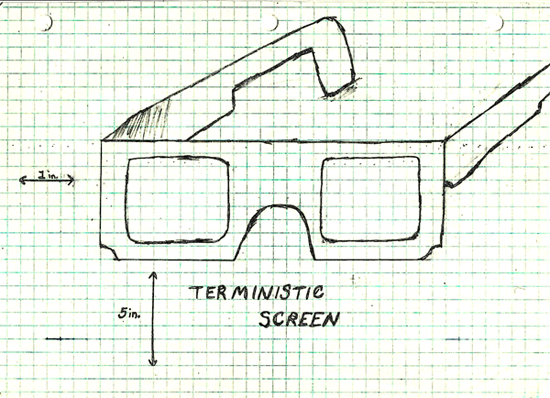

Another way of conceptualizing the change in attitude I am describing is to think of it as transforming our terministic screens and vocabularies in order to transform our design practices. Kenneth Burke (2001) explained that we are always using terministic screens; it is the way we understand the world, and there is no understanding outside of terministic screens (p. 1344). Burke’s concept of terministic screens has been useful to rhetorical theorists who have sought to understand the power that language has in shaping reality. In this webtext, we propose new terministic screens for talking about accessibility, such as safer spaces, a concept to which I will return at the end of my section.
I am proposing that we cultivate an awareness of the language we use as one practical way that we can create more welcome spaces, especially for people with psychiatric disabilities who may not be in need of physical accommodations as we traditionally envision them.

The above drawing -- a pair of cardboard glasses, labeled terministic screens -- is interactive. It signifies the filters we use to represent and understand what are conventionally considered mental illnesses. You can hover over or click on the left and right lenses to reach different destinations. (Glasses drawn by M. Remi Yergeau.)
In the spirit of the phrase “nothing about us without us,” I draw ideas from mental health activists and peer-run online communities for psychiatrically disabled people for ways to make our institutions more inclusive. Based on my dissertation research on the consumer/survivor/ex-patient movement and online communities associated with it, there are two tenets of the movement that I’d like to focus on here because they suggest ways of fostering more welcome, safer spaces for psychiatrically disabled people in our institutions:
These are points that we should keep in mind as we think about accessibility for all people with various mental and physical disabilities, but they are particularly important to remember about psychiatrically disabled people, who are at risk of being totally left out of the conversation of access because they may not require physical accommodations.